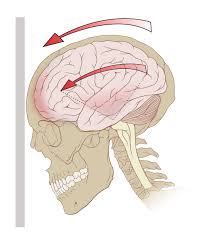
First of all, don’t let the word “mild” fool you. All brain injuries are serious and can have long-term, meaningful impacts on your quality of life.
A mild traumatic brain injury is defined as
A traumatically induced psychological disruption of brain function.
This disruption in brain function is manifested by at least one of the following:
- any period of loss of consciousness
- any loss of memory for events immediately preceding or following the accident
- any change in mental state at the time of the accident, such as feeling dazed, disoriented or confused
Common causes of mild traumatic brain injuries (TBIs) include car accidents, cycling accidents and sports accidents. The immediate symptoms can be subtle and easy to overlook. It is therefore essential to immediately seek medical attention if you have received trauma to the head, even if it seems relatively minor.
Recovery from mild traumatic brain injury typically ranges from three months to two years. It can therefore have a substantial impact on quality of life and your ability to earn an income.
All TBIs, including mild ones, are considered non-minor injuries. This means the amount of damages you can seek for pain and suffering for a TBI is not capped by Alberta’s minor injury regulations. To learn more about the minor injury cap, see our blog entry on the topic.
